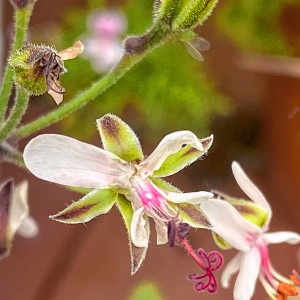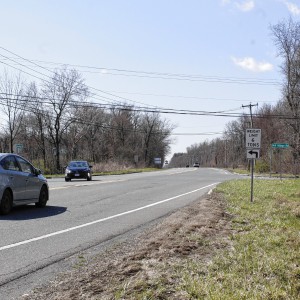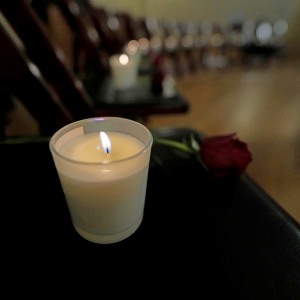Guest columnist Matthew Muspratt: Field, from another field
| Published: 06-04-2023 12:30 PM |
The recent furor over the Smith College School for Social Work’s decision to retire the word “field” from certain program descriptions for its racial “negative associations” has, perhaps predictably, sounded of America’s sharpest, most current schisms. While the Smith announcement spoke of “anti-racist work” and an “inclusive future,” Gazette letters to the editor decried “cancel-culture nonsense,” language policing, and “over-vigilance.” Today’s rhetoric, all.
But I have seen this debate before — over the very same word — and I have been trying to unpack whether the conversations I had several years ago offer a less politically charged perspective on the motivations and emotions at play.
The context I know is international development, where, generally speaking, one finds humanitarians from wealthy countries working, volunteering, and researching in less wealthy countries. For close to a decade I lived in sub-Saharan Africa, sometimes in a hut, sometimes behind a wall with a swimming pool, working in legal aid and microfinance. My Western (and largely white) friends managed agricultural training projects, studied post-conflict politics, and delivered medical care and the like.
Often, when it was time to visit a rural project site or conduct a client interview, someone might say — and this would be over Saturday beers at the beach bar, or while watching televised European soccer — that, “On Monday, I’m headed to the field.”
Social workers, natural and social scientists, and others would recognize this use of “field” as a term of contrast — not in the office, not in a controlled laboratory, not in the classroom, but in the field, where data is collected, activities observed, and partners and participants consulted. They also would recognize the serious pitfalls of using the term “field” — social work and international aid are not the only disciplines questioning language. But the issue seems especially glaring — and instructive — vis-á-vis development in Africa.
I could probably find emails and proposals where I employed “field” myself, but I (and many others) railed against its use for a couple of reasons.
First, development workers typically attached tales of hardship and inhospitable wild to their adventures in “the field.” They celebrated bouncing along rutted dirt roads to remote villages, consuming oily stews, and emerging victorious from bouts of malaria. “Field” meant “cliché Africa,” that exotic land of poor and diseased people who needed to be helped and studied by outsiders.
“Field,” in short, was perpetuating what Nigerian author Chimamanda Ngozi Adichie warned is a dangerous “single story” of African stereotypes.
Article continues after...
Yesterday's Most Read Articles
 South Hadley man fatally shot in attempted robbery
South Hadley man fatally shot in attempted robbery
 Smith College exhibit explores Sylvia Plath’s botanical inspiration
Smith College exhibit explores Sylvia Plath’s botanical inspiration
 Holyoke man finds bear paw in his yard
Holyoke man finds bear paw in his yard
 Guest columnist Bill Dwight: How to make sense of Northampton’s school budget dilemma
Guest columnist Bill Dwight: How to make sense of Northampton’s school budget dilemma
 South Hadley’s Lauren Marjanski signs National Letter of Intent to play soccer at Siena College
South Hadley’s Lauren Marjanski signs National Letter of Intent to play soccer at Siena College
 Deerfield residents petitioning to fix ‘dangerous’ intersection
Deerfield residents petitioning to fix ‘dangerous’ intersection
Relatedly, “going to the field” amounted to a declaration of power and inequality, the kind of “othering” of Africans that postcolonial scholar Edward Said and others have described. The “field” was a place where the privileged from “developed” societies (or capital-city homes with pools) could parachute in, poke and prod their “beneficiaries,” and then leave.
The subjects of that work, for whom the “field” was home — “undeveloped” infrastructure and all — were not so entitled. Thus the word “field” demanded the whole arrangement be understood through the same ugly power inequities Africa experienced through the slave trade, colonialism, resource extraction, and on.
Finally, for me the kicker, demarcating “the field” in contrast to the office, NGO headquarters, Washington, D.C., or wherever, bizarrely implied Africa (or a rural village) was somehow unconnected to these places. Africa as “the field” divorced the continent from a world that buys its natural resources, enjoys its tourist sites, calls it home, etc. (not to mention a world that has long influenced the trajectory of African history).
What was the point, or unintended consequences, of artificially chopping off the continent or an African village from an interconnected world?
The alternatives? “On the ground” seemed to me a synonym of “in the field,” and added a militaristic layer. I always thought we could simply use actual place names. I would not “head to the field” but “to Tikonko” or “to the Karaga market.” To Northampton.
Unfortunately, I found international development loaded with problematic language of patronizing dominance. Particularly cringe-worthy were references to countries “graduating” from aid, an infantilizing term for when wealthy nations decided poorer countries, the “beneficiaries,” no longer needed their money.
Is social work or Smith’s school similarly plagued? I claim complete naiveté about the, er, field. (I find it curious the School for Social Work’s language key recommends “profession” instead of “field” in the sense of subject area — the meaning appears distinct from the sense causing concern.) I also suspect School for Social Work students pursue a very wide range of professional pathways, each with their own language complexities.
In the niche I knew, from my perspective, avoiding “field” did not revolve around the inclusion (or, conversely, policing) rhetoric that characterizes today’s political arguments. I do not think “field” held specific “negative associations” with race or slavery, or that by dropping the word we development workers hoped to protect particular individuals from a micro-aggression (though clearly my above points ring of exclusion and marginalization).
Rather, “field” bothered me because, by exoticizing Africa and reinforcing Africans as “the other,” the word weaved an obviously bogus and harmful narrative, for an entire industry. What good could possibly come from using a word that manipulated how we development workers navigated our lives and work? One that replicated the very worst dichotomies of Western engagement with Africa?
International development did not need to nix “field” for harm it caused per se, but for the story it told.
Matthew Muspratt lives in Northampton.

 Guest columnist Jena Schwartz: Things I have not said
Guest columnist Jena Schwartz: Things I have not said Wendy Parrish: Northampton Volunteer Fair
Wendy Parrish: Northampton Volunteer Fair Guest columnist Rob Okun: Still No. 1 in male mass shootings 25 years after Columbine
Guest columnist Rob Okun: Still No. 1 in male mass shootings 25 years after Columbine Guest columnist Oriel Strong: Think impossible thoughts
Guest columnist Oriel Strong: Think impossible thoughts
